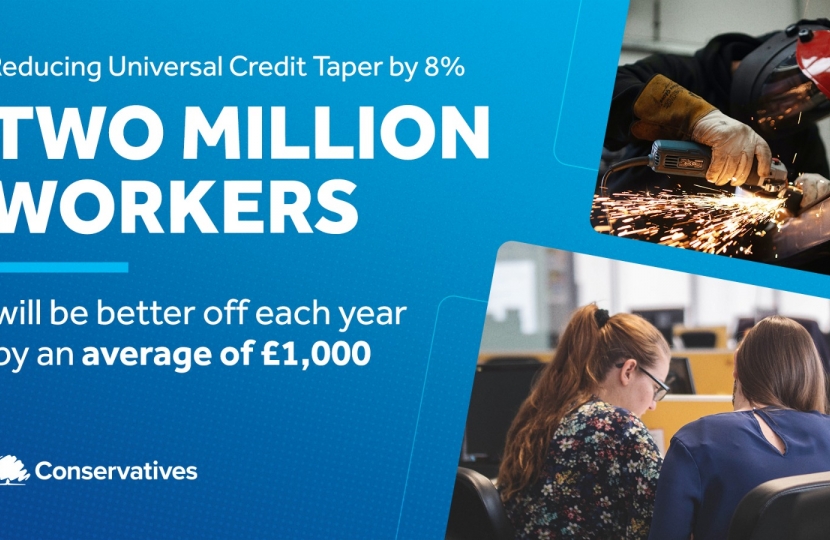
Today, tens of thousands of low income households will get a cash boost as higher Universal Credit payments land in bank accounts for the first time.
The Universal Credit taper rate – the amount that a person’s benefits are reduced by as they earn more – has dropped from 63% to 55%. Simultaneously, work allowances, the amount eligible claimants can earn before their Universal Credit is reduced, have increased by £500 per year.
The changes mean people will keep more of what they earn, representing an effective tax cut worth £2.2 billion for the lowest earners.
Taken together the move will see, in total, almost two million of the lowest paid working families better off each year by an average of £1,000.
The Department for Work and Pensions has introduced the changes as quickly as possible, passing regulations last week to secure the higher payments for the lowest earners in time for Christmas.
The changes mean, for example, that a single mother of two, renting in Darlington, working a full-time job on the National Living Wage, will see her take-home income increase by £1,200 on an annual basis.
Meanwhile, a couple with two children, renting their home, where one partner works full time at the National Living Wage and the other works 16 hours a week earning the same, will be £1,800 per year better off.
Vulnerable households across the country are also able to access the £500 million Household Support Fund to help them with essentials over the coming months as the country continues its recovery from the pandemic. The devolved administrations will receive almost £80 million of the £500 million (£41 million for the Scottish Government, £25 million for the Welsh Government and £14 million for the NI Executive).
More information
- With a number of people expected to be newly eligible for Universal Credit, people are being urged to check a benefit calculator on gov.uk to see if they could increase their income.
- Along with changes to the taper rate, work allowances, the amount a claimant can earn before their Universal Credit is reduced.
- Those receiving other benefits from the Government including Working Tax Credits should note that if they apply for Universal Credit they cannot return to their previous benefits.
- For those not in work they will continue to benefit from Universal Credit standard allowance and additional extra support if they have children, have a disability or health condition which prevents them from working or need help paying their rent.

